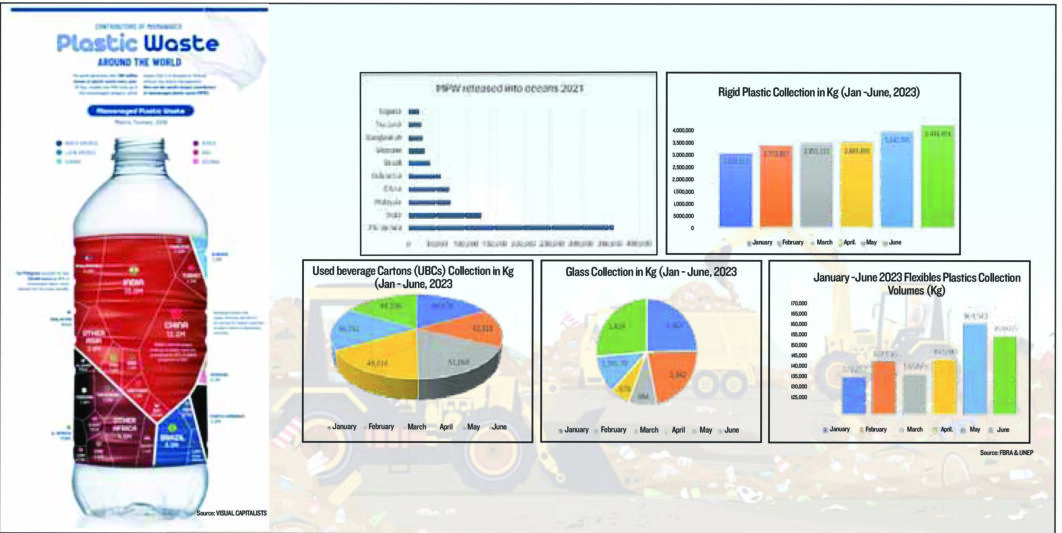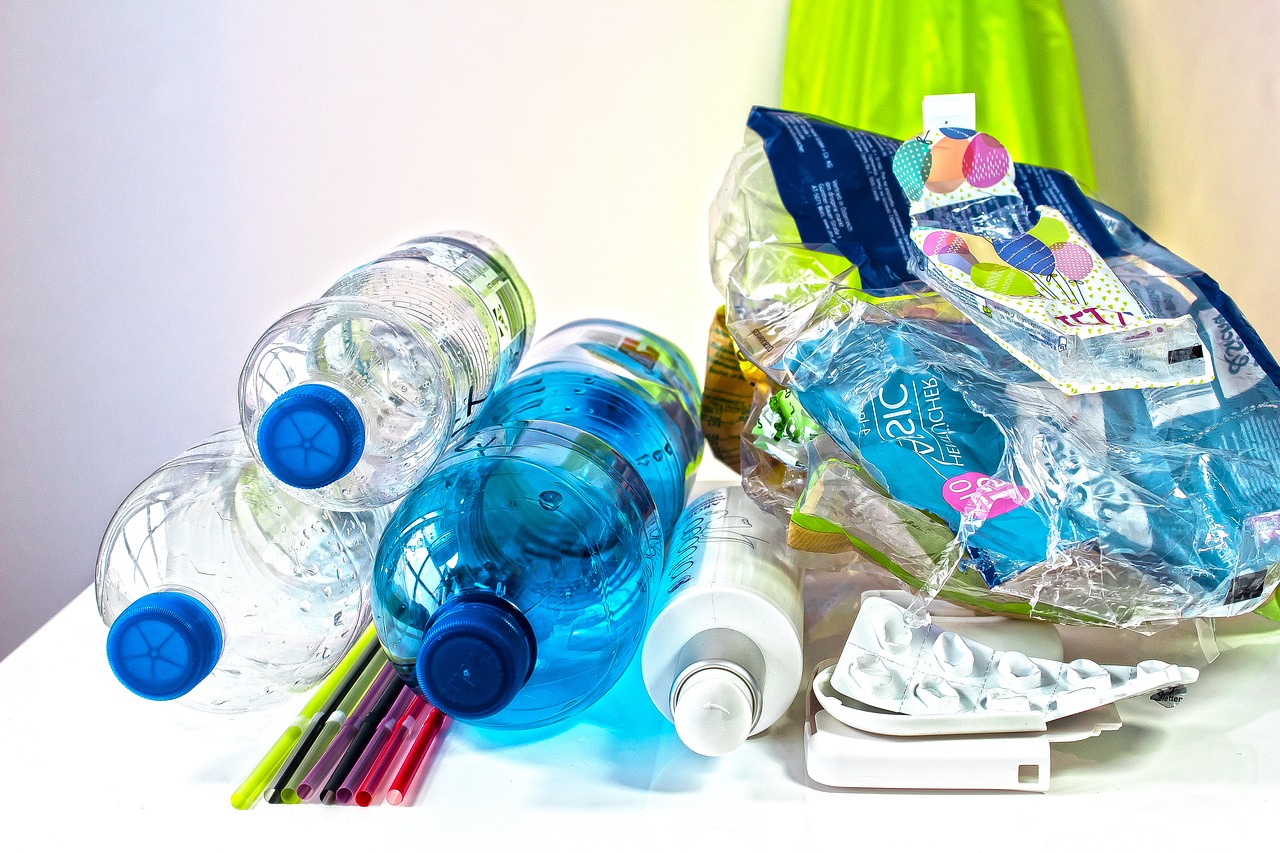
• Urge govt to explore, widen recycling methods; not alienate industries
The ban on styrofoam and single-use plastics to curb pollution by the Lagos State government may have been welcomed by many considering the menace they cause to the environment, but implementation becomes a challenge without the involvement of stakeholders in the value chain.
Though operators, especially food vendors may have adjusted their plans and business models, there are concerns about the suddenness of the policy and implications for inflation, as production costs of re-usable plastics spike.
With no less than 2.5 million tonnes of plastic waste generated by Nigerians yearly, plastic accounts for 15 per cent of the total waste generated in Lagos State, with much of it found in drainages and small bodies of water.
With no plans for the ban as well as the short implementation timeline, there are concerns about the effect on the food and beverage industry and operators who have made financial commitments for procurement of plastics and by-products for their operations.
To address the challenges created by the ban, operators have advocated intensified recycling of such plastic wastes and also involve them in decision making.
According to the Organisation for Economic Co-operation and Development (OECD), only nine per cent of the world’s plastic waste is recycled, as half of the world’s plastic still goes straight to landfill. Another fifth is mismanaged – meaning it is not recycled, incinerated, or kept in sealed landfills – putting it at risk of being leaked into rivers, lakes, and the ocean.
In Nigeria, the incentive to recycle is low as N70 is offered per kilogramme of scavenged plastic. With the Lagos State government focusing on single-use plastics, the challenge remains the impact of the decision of a sub-national on the federating units, considering that nylon bags and other variants have become a part of lifestyle that is not restricted to Lagos.
Though the Food and Beverage Recycling Alliance (FBRA) has been able to intensify collection and recovery of post-consumer packaging wastes, it was only able to recover about 18million kilogramme of rigid plastics at the end of the first half of 2023. Most of the collections happened in Lagos, which had more collection centres than other states.
Nigeria adopted the extended producer responsibility policy through its National Environmental Standards and Regulations Enforcement Agency in 2014. But it has not yet been fully implemented in all Nigerian states. Hence, reflecting the current state of plastic waste pollution.
While this announcement has generated mixed reactions from residents and stakeholders, businesses and manufacturers are scrambling to adjust to this development.
A visit by The Guardian to some fast-food restaurants yesterday, revealed that Styrofoam was not used, however, transparent plastic containers were being sold at inflated prices.
A manager of a popular fast-food chain in the Isolo area of Lagos who did not want to be named, said they had just taken delivery of the Styrofoam (popularly known as takeaway and used to sell food to customers) and the ban came to them by surprise. “We have hundreds of such packs in the store, what will happen to them? This is going to be a big loss to us and I think we should have been given some time to phase them out gradually, as against an outright ban,” he said.

A major plastics retailer located around the Oshodi-Apapa expressway, Ileri-Oluwa Plastics regretted that they were not carried along before the ban was announced, adding that they are at a complete loss on what to do.
“We have hundreds of bales of those plastics in our warehouse running into millions of Naira; what is going to happen to them? Instead of outright ban, the government should encourage and incentivise recycling and they will be shocked at the way Nigerians will take it seriously. We are pleading with the government to extend the deadline, so we don’t run into debt. PET plastics and pure water nylons are not banned and yet, they constitute a nuisance as much as the SUPs the government is focusing on.”
Speaking with The Guardian, Director Recycle Points NG, Taiwo Adewole, called for a change of attitude to SUPs and styrofoam, as he called for the adoption of alternatives.
“The ban on SUPs and styrofoam is long due. When the government came up with the extended producer responsibility policy on plastic, they gave the manufacturers the opportunity to come up with Producer Responsible Organisation (PRO) and that is how feedback for the ban came up. Some tried to recover plastics in circulation but companies producing styrofoam didn’t bother to be part of the process”, he added.
On if the ban will indirectly affect plastic cutlery, straws and nylon bags, Adewole said all the above listed already have alternatives.
“There are paper plates and cutlery and even straws, there are innovations in that regard. There has been a policy in place, over 10 years, the Extended Producers Responsibilities, which gives industries the opportunity to think inwards on innovation, plastic recovery and working towards alternatives.
“However, most of them ignore the three Ps out of the 4Ps (Planet, People, Profit and Partnership) they focus more on just Profit. Now there is a ban in place, the manufacturers should go back to the drawing board with relevant stakeholders, the government and the recyclers to craft a solution.”
He added that presently, there are adequate recycling facilities for PET bottles and pure water nylons, to the extent that collectors do not even meet up with recycling demand. “We have over 100 collectors in Lagos alone (former collectors) and over 600 informal collectors for those items.”
Encouraging Nigerians to come into the recycling space, he said there is a lot of money to be made in the sector. “It is basically a waste of wealth. People can collect these styrofoam around, sell to companies that recycle them into other materials at the rate of N70/Kg. Same applies to PET bottles and pure water sachets, all there are items Nigerians use daily and dispose anyhow.”
Revealing that there are just one or two companies that presently offtake Styrofoam in Lagos, he opined that that might be the reason it is not easily taken off the streets compared to PET bottles that have higher demand and more buyers. “The economic implication of this right now is for everyone to go back to the drawing board, create more opportunities for recycling and collection rate would increase at a premium. Currently, Styrofoam is shredded and still has to be mixed with other plastics to create furniture and other materials. We however need more publicity, better awareness and public education on the importance of recycling,” he said.
Executive Director, Universal Luggage Industries Limited, a manufacturing outfit based in Lagos, and former chairperson, Manufacturers Association of Nigeria (MAN), Apapa branch, Frank Ike Onyebu, said the government ought to have extensively met with all the stakeholders in the sector first before taking the decision. He added that a better alternative to the ban should have been looking to strengthen recycling efforts and work within a timeframe to gradually ease SUPs out. “Yes, the government can do as it wishes but it should also be fair to manufacturers and businesses. We are already going through a lot and struggling to survive and decisions like this tend to alienate and discourage manufacturing. Government is killing business instead of encouraging us and making the environment very unfriendly to manufacturing.”
“A timeframe should have been given to us so that production stops and people can sell off available stock. These items are in the warehouses, what will happen to them? We always speak of attracting foreign investors, how does this kind of action encourage anybody to want to come in? Our economy is dying and instead of frustrating those people still trying to keep the industrial sector alive, the government should engage more with the real sector.”
Onyebu, who manufactures plastic products at the Amuwo-Odofin area of Lagos, said they do a lot of recycling but demand is unfortunately always more than supply.
He said many plastic manufacturers are ready to set up near dump sites to gain easier access to raw materials needed for production, he said no matter the quantity of recycled plastic available, they are ready to buy.
“Many manufacturers recycle these plastics themselves and if the government had met with us, we would have made them realise that banning is not the solution, rather, we need to improve upon ways we can get these materials back into factories. Sometimes, we cannot even produce because of the lack of raw materials.”
He regretted that many fancy ideas are copied from the west without considering the local environment and experiences in which we operate in, in Nigeria.
“Government cannot just wake up and ban these things because other countries did so and even with those ones, it was a gradual transition and not an overnight ban. Let us not compare ourselves to those countries and not take into consideration the businesses that are clearly going to be affected by this decision. We produce very little in Nigeria, yet, the few people trying to do something in the real sector, the government is working hard to frustrate them and send them packing. Yes, SUPs are often not disposed properly, creating environmental nuisances but there are better ways to handle this issue,” he said.






